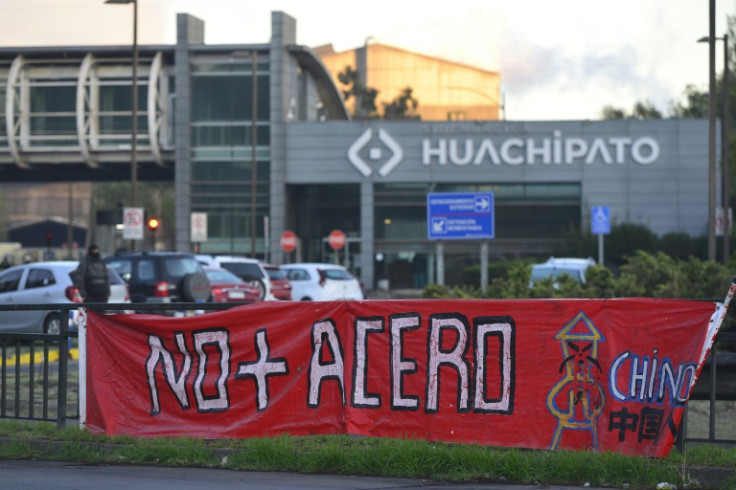
Chile's biggest steel plant has resumed activities after the government imposed a temporary tariff on Chinese imports.
The Huachipato plant, which provides 2,700 direct jobs and some 20,000 indirect ones, announced a month ago it was winding down, unable to compete with Chinese steel that sells for about 40 percent cheaper in the South American country.
The company had asked Chile's CNDP anti-price distortion commission to recommend the government impose a 25 percent tariff on imported steel.
The commission in a recent ruling found "sufficient evidence to support the existence of dumping" -- the selling of Chinese steel below cost.
Then on Saturday, Chile's finance ministry imposed a temporary tariff ranging from 25 percent to 34 percent on Chinese steel imports.
The measure, which appeared to fly in the face of a free trade agreement between Chile and China, was authorized by the CNDP.
"We hope that this interim measure will be confirmed with definitive measures that will allow us to continue to compete on an equal footing," the plant said in a statement.
Latin America last year imported a record 10 million tons of Chinese steel -- a 44 percent rise from the year before, according to data from the Latin American Steel Association (Alacero).
Two decades ago, the figure was just 85,000 tons.
Some 1.4 million people work in the steel industry in the region.
The United States, too, has complained about cheap Chinese steel, and last week US President Joe Biden called for a hike in tariffs as he accused the Asian giant of "cheating."
Huachipato specializes in key inputs for the mining industry, including steel bars and balls used in the milling of copper -- of which Chile is the world's largest producer.







